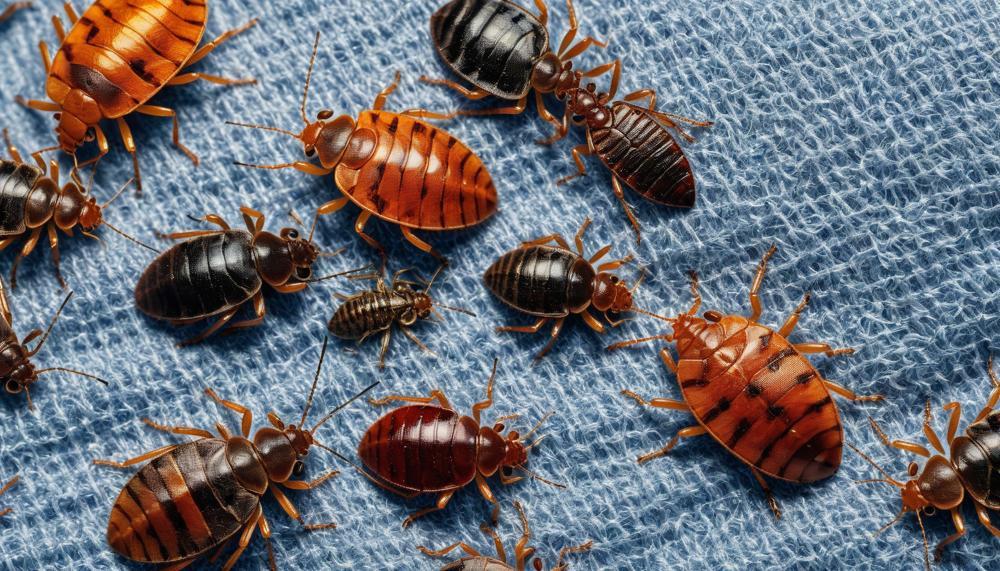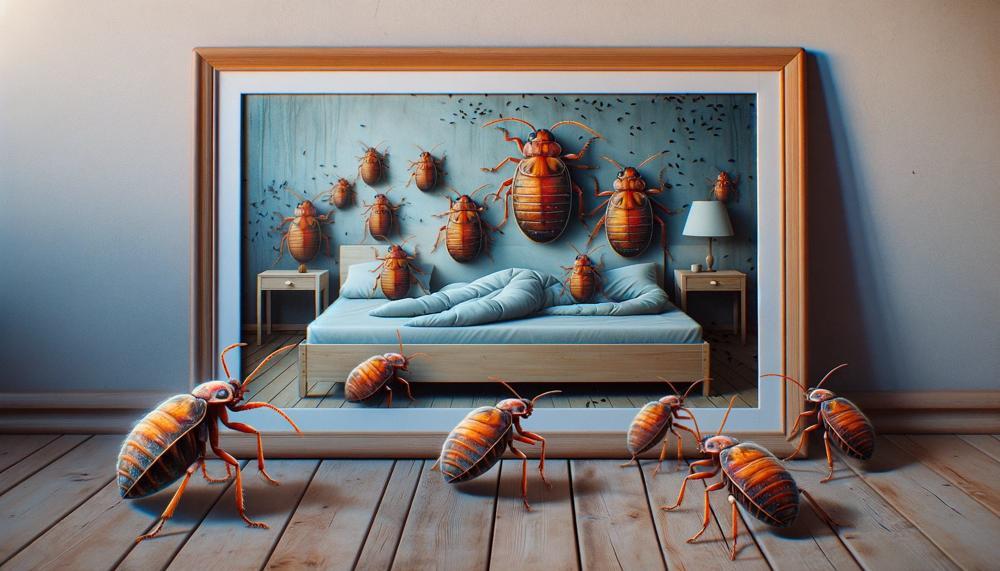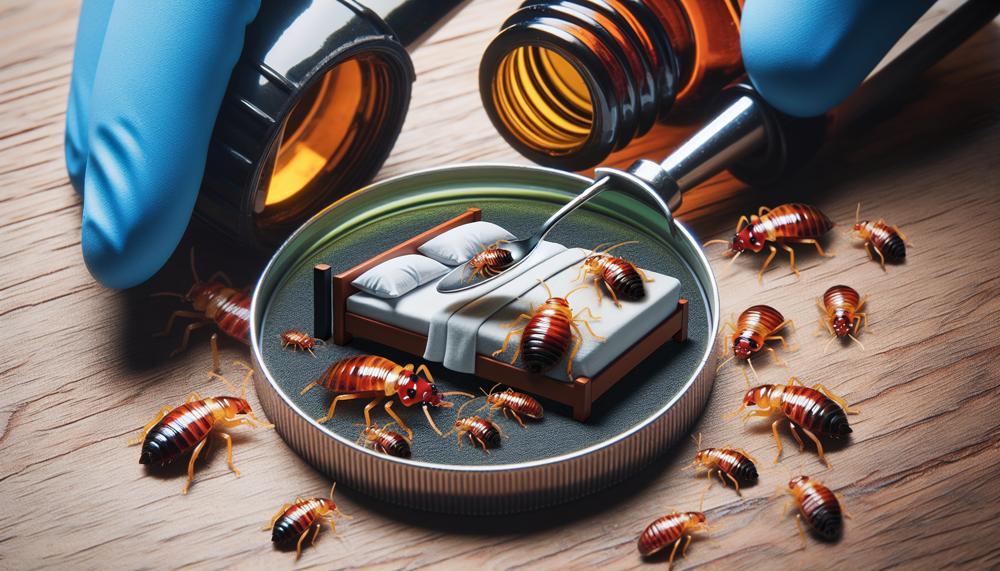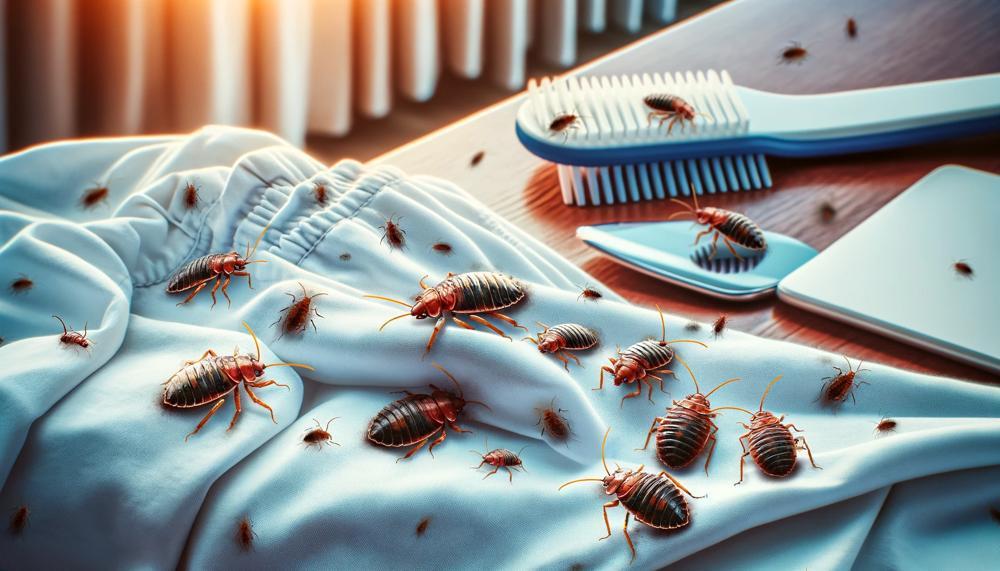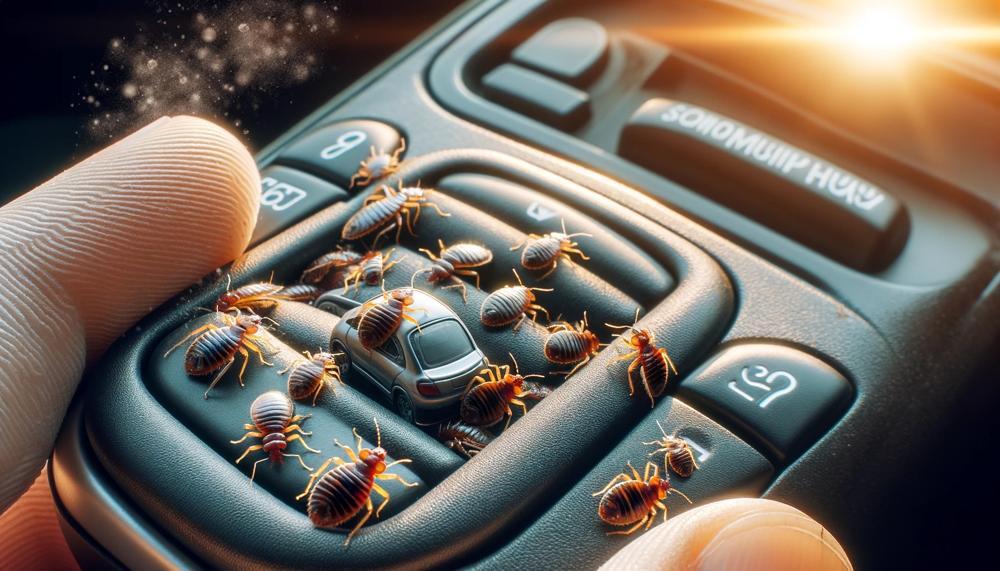When it comes to domestic pests, bed bugs and roaches often have the regrettable distinction of being unwanted visitors. However, what if these two widespread pests came into contact? Would roaches and bed bugs live in harmony or would they turn into one other’s natural enemies? To find out the facts, let’s explore the intriguing realm of pest interactions:
Roaches and Bed Bugs: A Tale of Two Pests
-
- Roaches, resilient survivors that thrive in various environments, are known for their adaptability and ability to consume a wide range of food sources.
- Bed bugs, on the other hand, are blood-feeding insects that primarily target humans for their sustenance.
The Food Preferences of Roaches
- Roaches are omnivorous scavengers with a diverse diet that includes decaying organic matter, food scraps, and even other insects.
- While roaches may occasionally consume dead bed bugs, they are not known to actively hunt or prey on live bed bugs.
Competition for Resources
- In situations where roaches and bed bugs coexist, competition for resources, such as food and shelter, can arise.
- However, roaches typically have a broader diet and can survive on various food sources, reducing the direct competition between the two species.
The Verdict: Unlikely Predators
- Based on the available evidence, it is unlikely that roaches actively seek out or consume live bed bugs as a primary food source.
- While roaches may occasionally encounter and consume dead bed bugs, this behavior is not a significant factor in controlling bed bug infestations.
Embark on a journey to uncover more fascinating facts and insights about the interactions between roaches and bed bugs in the rest of this blog post.
Table of Contents
The Diet of Roaches
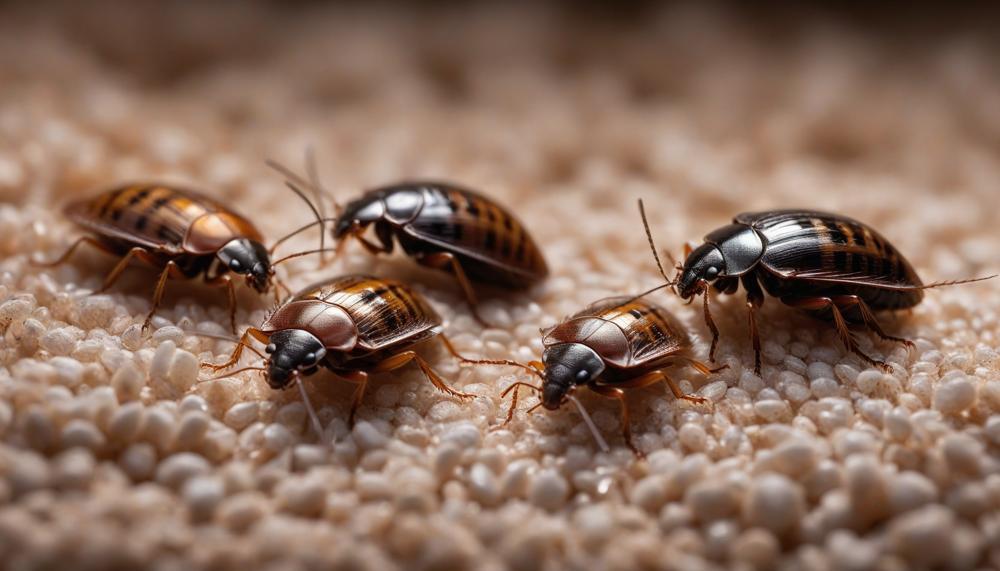
| Food Type | Impact on Behavior and Survival |
|---|---|
| Carbohydrates (sugars and starches) | Provides energy for movement and reproduction |
| Proteins | Essential for growth and development |
| Fats | Provides energy and helps absorb vitamins |
| Water | Essential for survival and helps regulate body temperature |
| Other organic matter | Can include dead insects, pet food, and garbage |
Roaches have a diverse diet and can consume a wide variety of foods, including:
- Carbohydrates: Roaches prefer sweet foods, such as sugar, honey, and fruit. Sugars provide a quick source of energy for roaches and are essential for their survival.
- Proteins: Roaches also need protein in their diet. They can get protein from a variety of sources, including meat, eggs, and cheese. Proteins are essential for growth and development in roaches.
- Fats: Roaches also need fats in their diet. Fats provide energy and help roaches absorb vitamins. They can get fats from a variety of sources, including butter, oil, and grease.
- Water: Water is essential for the survival of roaches. They can get water from a variety of sources, including drinking water, food, and the air.
- Other organic matter: Roaches can also eat a variety of other organic matter, including dead insects, pet food, and garbage. This type of food can provide roaches with nutrients that they need to survive.
The diet of roaches has a significant impact on their behavior and survival. Roaches that have a healthy diet are more likely to be active and reproduce successfully. They are also more likely to be resistant to pesticides and other chemicals. Roaches that have a poor diet are more likely to be sluggish and have difficulty reproducing. They are also more likely to be susceptible to disease and death.
Roaches are a pest that can be found in homes and businesses all over the world. They are attracted to food and water, and they can contaminate food with their feces and saliva. Roaches can also transmit diseases to humans and animals. By understanding the diet of roaches, we can better understand how to control them and prevent them from becoming a problem.
The Diet of Bed Bugs
| Blood Type | Preference Level |
|---|---|
| Human | Highest |
| Animal | Lower |
| Bird | Lowest |
Bed bugs are primarily attracted to human blood. This is because human blood is rich in nutrients that the bugs need to survive and reproduce. Bed bugs can also feed on animal blood, but they do not prefer it as much as human blood. Bird blood is the least preferred type of blood for bed bugs.
Do Roaches and Bed Bugs Live in the Same Places?
| Factor | Influence on Coexistence |
|---|---|
| Food availability | Both roaches and bed bugs feed on human blood, so they may compete for the same food source if resources are limited. |
| Hiding places | Roaches and bed bugs prefer different hiding places. Roaches tend to hide in dark, damp areas, such as under sinks, in cabinets, or in the backs of closets. Bed bugs, on the other hand, prefer to hide in close proximity to their food source, such as in mattresses, box springs, or headboards. |
| Temperature and humidity | Roaches and bed bugs thrive in warm, humid environments. However, roaches are more tolerant of high temperatures and low humidity than bed bugs. |
| Human activity | Human activity can influence the coexistence of roaches and bed bugs. Roaches are more likely to be found in homes and businesses that are not regularly cleaned or maintained. Bed bugs, on the other hand, are more likely to be found in places where people sleep, such as hotels, motels, and dormitories. |
Can Roaches Kill Bed Bugs?
| Roaches | Bed Bugs | Can Roaches Kill Bed Bugs? |
|---|---|---|
| Insects | Insects | No |
| Nocturnal | Nocturnal | andnbsp; |
| Omnivorous | Blood-feeders | andnbsp; |
| Transmit diseases | Transmit diseases | andnbsp; |
Roaches and bed bugs, both unwelcome houseguests, share some similarities: they’re nocturnal, can transmit diseases, and are resilient pests. However, roaches, being omnivorous, do not prey on bed bugs, which feed solely on blood.
Can Bed Bugs Kill Roaches?
| Can a bed bug’s bite be fatal to a roach? | Answer |
|---|---|
| Do bed bugs feed on roaches? | No |
| Can roaches eat bed bugs? | Yes |
| Are roaches natural predators of bed bugs? | Yes |
No, a bed bug’s bite is not fatal to a roach. In fact, roaches are natural predators of bed bugs. Roaches will eat bed bugs, and they are often used in pest control to help eliminate bed bug infestations.
How to Get Rid of Roaches and Bed Bugs
| Roaches | Bed Bugs |
|---|---|
| Omnivorous | Blood-Feeding Parasites |
| Eat a Wide Variety of Foods, Including: | Feed Exclusively on Blood |
| – Plant Matter | – Human Blood |
| – Animal Matter | – Animal Blood (In Some Cases) |
| – Decaying Organic Matter |
Roaches and bed bugs have vastly different dietary needs. Roaches are omnivorous scavengers that will eat nearly anything, including plant matter, animal matter, and decaying organic matter.
Bed bugs, on the other hand, are blood-feeding parasites that feed exclusively on the blood of humans and other animals. As a result, these two pests do not compete for the same food sources and can coexist in the same environment without directly competing for sustenance.
Conclusion
When it comes to domestic pests, bed bugs and roaches often have the regrettable distinction of being unwanted visitors. In terms of dietary choices, however, their trajectories seldom ever intersect.
Although they may sometimes come across and eat dead bed bugs, roaches do not actively pursue or feed on live ones due to their omnivorous diet. Because these two species have distinct food requirements, there is little rivalry between them for resources. Roaches are thus unlikely to be a major factor in managing bed bug infestations.

